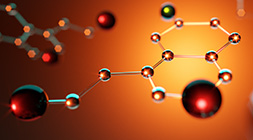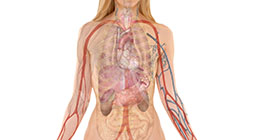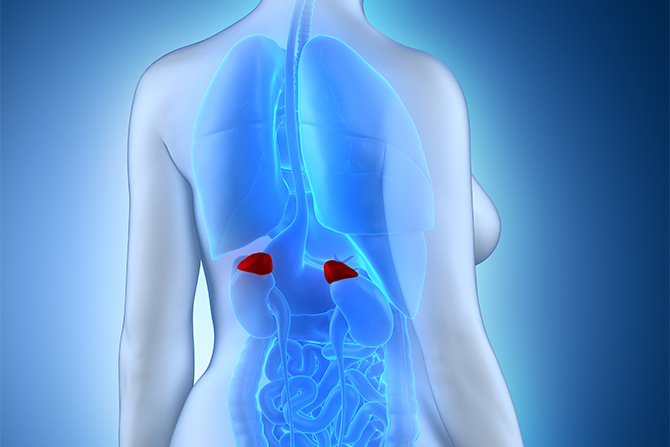Overview
Symptoms
Causes
Prescription
Health Tips
Addison’s disease, also called primary adrenal insufficiency or hypocortisolism, is a rare disorder caused by chronic and insufficient functioning of the outer layer of the adrenal gland.
The adrenal glands lie on top of each kidney and produce three types of hormones:
- Androgen and estrogen hormones
- The glucocorticoid hormones, including cortisol
- The mineralocorticoid hormone aldosterone
The glucocorticoid hormones maintain glucose regulation, regulate the immune system, and help in stress response. Aldosterone regulates sodium and potassium balance.
With Addison’s disease, the outer cortex of the adrenal glands is damaged, and cortisol and aldosterone are secreted in insufficient amounts.
Symptoms
Addison’s disease diagnosis may be missed or delayed until symptoms become debilitating, especially when skin darkening, a visible symptom, is not apparent. Hypothyroidism or diabetes may appear alongside Addison’s disease. Illness, stress and injury may all aggravate symptoms. Addison’s disease symptoms increase over time and, if left untreated, symptoms can lead to adrenal crisis and death. Those with Addison’s must work with an endocrine specialist.
Early symptoms include:
- Chronic candidiasis
- Dehydration
- Increased thirst and urination
- Loss of appetite
- Salt cravings
- Weight loss
Later symptoms:
- Blood sugar disorders
- Darkening of the skin and mucous membranes
- Dizziness
- Gastrointestinal disturbances
- Headaches
- Low blood pressure
- Malabsorption
- Memory problems
- Ovarian failure
- Pernicious anemia
- Severe weakness and fatigue
Symptoms of an Adrenal Crisis:
- Fainting, loss of consciousness
- Severe dehydration
- Sudden onset of extreme pain in the legs, abdomen and lower back
- Vomiting and diarrhea
Causes
Addison’s is predominantly caused by an autoimmune reaction whereby the immune system destroys the outer layer of the adrenal cortex.
Addison’s may also be caused by:
- Adrenal hemorrhage
- AIDS
- Chronic infections, such as tuberculosis
- Pituitary disease
- Prolonged use of steroid medication that suppresses adrenocorticotrophic hormone
- Surgical removal of both of the adrenal glands
- Tumour growth (amyloidosis, whereby amyloid proteins build up in the adrenal glands and damages them)
- Viral and fungal infections
- Certain treatments for Cushing’s Syndrome, such as removal of the pituitary gland, or an injury to the pituitary gland may leave one with a deficiency of ACTH (adrenal corticotropic hormone) which can lead to adrenal insufficiency/Addison’s disease.
Specific genes in some people indicate an increased risk of developing Addison’s, especially if a family member has another autoimmune disease such as multiple sclerosis. The most common gene variant is HLA-DRB1 which likely contributes to inappropriate immune responses in Addison’s and other autoimmune diseases.
Prescription for Health
Those with diagnosed Addison’s disease should consult an endocrine specialist as specific pharmaceutical medications are often required. The following natural supplements may help.
| Nutrient | Dosage | Action |
|---|---|---|
| Moducare sterols and sterolins | Two capsules three times daily for one week; one capsule three times daily thereafter | Stops autoantibody production and modulates Cortisol, enhances DHEA |
| Coenzyme fully reacted B-complex | Look for a minimum of the following per daily dose:
B1 – 100 mg B2 – 7.5 mg Niacin – 353 mg B5 – 300 mg B6 – 100 mg B12 – 1000 mcg Folate- 1000 mcg |
Improves mood, reduces anxiety and stress; aids hormonal balance. B vitamins in their active coenzyme form are absorbed directly. |
| Vitamin C | 1000 mg daily | Antioxidant; enhances immune function |
| Pantothenic acid | 1000 mg daily in divided doses | Required by adrenal glands hormone activity. In lupus research, up to 6 g was used with success to control autoimmunity. |
| Astragulus | Two 500 mg capsules or 5 mL of tincture daily | Improves adrenal function and reduces stress |
| Licorice DGL | Chew two tablets 20 minutes before each meal | Supports the adrenal glands, stimulates aldosterone and Cortisol |
Health Tips to Enhance Healing
- Avoid substances that antagonize the adrenal glands; alcohol, animal products, caffeine, bad fats such as fried foods, processed food, soft drinks, sugar, tobacco, and refined white flour products.
- Consume plenty of fresh fruits and vegetables, nuts and seeds, healthy oils, legumes, and whole grains. Have deep-water ocean fishes such as salmon, mackerel, and sardines
- Drink whey protein powder daily to ensure adequate glutathione production and amino acids. Amino acids are required for proper functioning of adrenal hormones.
- Protecting the adrenal glands is of the utmost importance to prevent them from becoming completely exhausted. Practice stress-reduction techniques regularly (see Adrenal Fatigue) and get proper rest.











